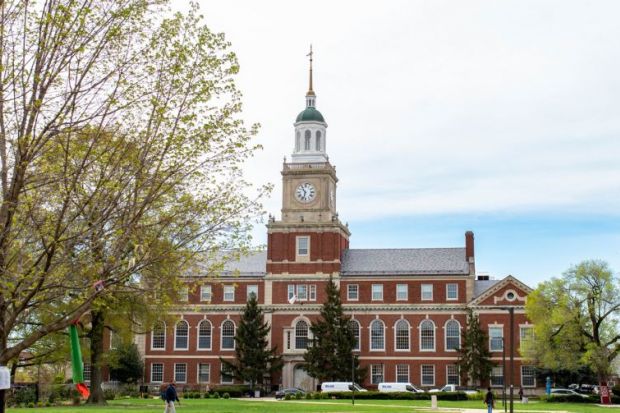Nearly 20 historically black colleges and universities (HBCUs) in the US have reported bomb threats this week, raising campus-wide panics at the start of Black History Month.
The phoned-in threats led several of the HBCU institutions to impose lockdowns or reschedule classes, and brought vows of resilience from campus leaders and promises of investigations from top federal officials including the FBI.
Those affected included many of the nation’s most prominent HBCUs, including Spelman College, Howard University and Xavier University of Louisiana.
No actual explosive devices were reported to have been found. The White House expressed concern while saying that federal officials had not determined who or what kind of entity may be responsible.
“We condemn these disturbing threats, and our thoughts are with the students, faculty, and staff of these storied institutions,” the chief White House spokeswoman, Jen Psaki, told reporters.
Threats against college campuses are not uncommon – at least eight HBCUs received bomb threats early last month, and the University of California, Los Angeles moved classes online this week after a former lecturer and postdoctoral fellow sent a threatening letter and video aimed at UCLA’s philosophy department.
The arrival of February also brought violence to Bridgewater College in Virginia, where two campus officers were fatally shot and a former student was arrested in the case.
The incidents involving HBCUs gained nationwide attention, however, for the number of cases and for their timing alongside the start of Black History Month, an annual observance created in the 1970s as a way of remembering and honouring African American history.
Several HBCU presidents assured their campuses by pointing out the long-term perspective.
“Our history has been one where we have endured all kinds of challenges and disruptions, but we have always emerged stronger,” David Wilson, the president of Morgan State University, said in a note to his campus community.
“The black community is no stranger to these sorts of threats, both real and fabricated,” Wayne Frederick, the president of Howard, told his campus. “The institutions dedicated to the education of people of colour have always been a source of fear and a target of violence for those who wish to undermine the pursuit of justice and enshrine the unequal status quo in our society.”
Experts on campus security said that such attacks have been widespread and the causes varied. One of them, John Muffler, the head of Aequitas Global Security, said the early indications he had heard from government authorities suggested a single person may be behind all the calls to HBCUs in recent days.
The moment should motivate HBCUs, to the degree they don’t already have them, to create robust systems for sharing threat information among themselves, Mr Muffler said.
“This may be a moment where they can say, ‘Hey, we need something that’s better, we need to be better at communicating the threats to my university, because you may receive them at your university too,’” he said.
“A single incident,” said another security professional, Bruno Dias, “may originate from a disgruntled employee, for example, and quickly evolve to include students trying to create disruptions or hate groups trying to propel a campaign of hate. Trying to find out who and why is often a difficult task.”
Beyond Spelman, Howard, Xavier and Morgan State, those reporting bomb threats this week include Albany State University, Alcorn State University, Arkansas Baptist College, Bethune-Cookman University, Bowie State University, Coppin State University, Delaware State University, Edward Waters University, Fort Valley State University, Jackson State University, Kentucky State University, Mississippi Valley State University, Philander Smith College, Southern University and A&M, Tougaloo College and the University of the District of Columbia.
Register to continue
Why register?
- Registration is free and only takes a moment
- Once registered, you can read 3 articles a month
- Sign up for our newsletter
Subscribe
Or subscribe for unlimited access to:
- Unlimited access to news, views, insights & reviews
- Digital editions
- Digital access to THE’s university and college rankings analysis
Already registered or a current subscriber? Login










